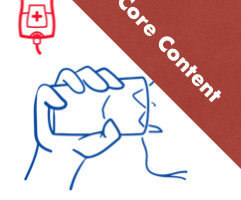But Can You Just PO?
Taming the SRU
DECEMBER 17, 2024
Fluid management in the Emergency Department (ED) is crucial in the adequate resuscitation of the acutely ill and decompensating patient. Patients present to the ED with hypovolemia secondary to a plethora of causessome requiring IV fluid resuscitation and others requiring none.













Let's personalize your content